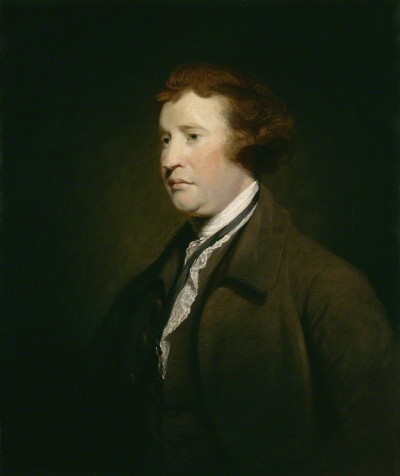Revolution in France is a political pamphlet written by the Irish statesman Edmund Burke and published in November 1790. It is fundamentally a contrast of the French Revolution to that time with the unwritten British Constitution and, to a significant degree, an argument with British supporters and interpreters of the events in France. One of the best-known intellectual attacks against the French Revolution, Reflections is a defining tract of modern conservatism as well as an important contribution to international theory. The Norton Anthology of English Literature describes Reflections as becoming the "most eloquent statement of British conservatism favoring monarchy, aristocracy, property, hereditary succession, and the wisdom of the ages." Above all else, it has been one of the defining efforts of Edmund Burke's transformation of "traditionalism into a self-conscious and fully conceived political philosophy of conservatism".The pamphlet has not been easy to classify. Before seeing this work as a pamphlet, Burke wrote in the mode of a letter, invoking expectations of openness and selectivity that added a layer of meaning. Academics have had trouble identifying whether Burke, or his tract, can best be understood as "a realist or an idealist, Rationalist or a Revolutionist". Thanks to its thoroughness, rhetorical skill and literary power, it has become one of the most widely known of Burke's writings and a classic text in political theory. In the 20th century, it influenced a number of conservative intellectuals, who recast Burke's Whiggish arguments as a critique of Bolshevik programmes.
Edmund Burke (; 12 January [NS] 1729 – 9 July 1797) was an Irish-born British statesman, economist, and philosopher. Born in Dublin, Burke served as a member of parliament (MP) between 1766 and 1794 in the House of Commons of Great Britain with the Whig Party.
Burke was a proponent of underpinning virtues with manners in society and of the importance of religious institutions for the moral stability and good of the state. These views were expressed in his A Vindication of Natural Society. He criticised the actions of the British government towards the American colonies, including its taxation policies. Burke also supported the rights of the colonists to resist metropolitan authority, although he opposed the attempt to achieve independence. He is remembered for his support for Catholic emancipation, the impeachment of Warren Hastings from the East India Company, and his staunch opposition to the French Revolution.
In his Reflections on the Revolution in France, Burke asserted that the revolution was destroying the fabric of good society and traditional institutions of state and society and condemned the persecution of the Catholic Church that resulted from it. This led to his becoming the leading figure within the conservative faction of the Whig Party which he dubbed the Old Whigs as opposed to the pro–French Revolution New Whigs led by Charles James Fox.In the 19th century, Burke was praised by both conservatives and liberals. Subsequently, in the 20th century, he became widely regarded as the philosophical founder of conservatism.

1790Nov, 1
Edmund Burke publishes Reflections on the Revolution in France, in which he predicts that the French Revolution will end in a disaster.
Choose Another Date
Events on 1790
- 8Jan
State of the Union address
George Washington delivers the first State of the Union address in New York City. - 11Feb
Abolitionism in the United States
The Religious Society of Friends, also known as Quakers, petitions U.S. Congress for the abolition of slavery. - 29May
Thirteen Colonies
Rhode Island becomes the last of the original United States' colonies to ratify the Constitution and is admitted as the 13th U.S. state. - 31Jul
Potash
The first U.S. patent is issued, to inventor Samuel Hopkins for a potash process. - 22Oct
Little Turtle
Warriors of the Miami people under Chief Little Turtle defeat United States troops under General Josiah Harmar at the site of present-day Fort Wayne, Indiana, in the Northwest Indian War.

 English
English  español
español  français
français  português
português  русский
русский  العربية
العربية  简体中文
简体中文 